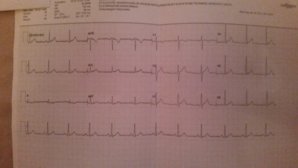So i did some data analysis on the reports posted in the user experience thread. I only took those user reports into account that posted at least twice and made an assessment as to whether the drug helps them or not. Please note that I don't take any responsibility for my analysis. I made it only for my own use, but I thought I might share it with you guys as well. so here we go:
People that I included in my assessment: 28
% of people that reported any type of improvement in their t while on the drug: 24 (86%)
% of people that reported no improvement whatsoever: 4 (14%)
Then I looked at those people that reported whether their reduction in t was sustained after tapering off. Altogether there were 19 people who made such a report. The other 9 didn't make any report on whether their t returned. Of those 19, 7 (37%) reported that their t was lower even after tapering off. 12 (63%) reported that their t returned some time after tapering off. In one case it returned even 2-3 months after. Note: this assessment already excludes people that have taken the drug like aspirin, i.e. that didn't take it continuously for a couple of weeks.
Of these 19 cases I then excluded those individuals that had their t for over 2 years and again those that took the drug for one month or shorter. That leaves us with 11 cases. Of those 11 people, 6 (46%) reported that their t returned after tapering off and 7 (54%) reported that their t stayed low. Of those 7 cases, the oldest t was 12 months old.
When comparing the two groups in the last analysis, no real differences in the age of the t, the average dosages, the number of days of being on the drug or the initial severity of the t can be found.
I think that assessing the side effects is not a good idea, since they have been studied in clinical trial settings and are widely available. The most serious risk appears to be the one related to the QT intervals. I'd definitely do an ECG before considering taking the drug and telling my cardiologist that I'm considering taking a drug that increases the QT interval by ca. 7 msec on average.
Hope this helps anyone who is considering taking the drug.

 Member
Member

